Italy and Brazil had two World Cups to their names when they met in the 1970 Football World Cup final in Mexico City. The Azzurri (Italy's national football team) had won the title in 1934 and 1938, and the Seleção (Brazil's national football team) conquered two of the previous three editions, in 1958 and 1962.
The Jules Rimet trophy, named after the man who invented the global football event, was permanently going to be awarded to the first nation winning the competition three times. Therefore, the final played on 21 June 1970 at the Azteca stadium, in front of a crowd of 107,500, was arguably the most important football match in the history of the sport.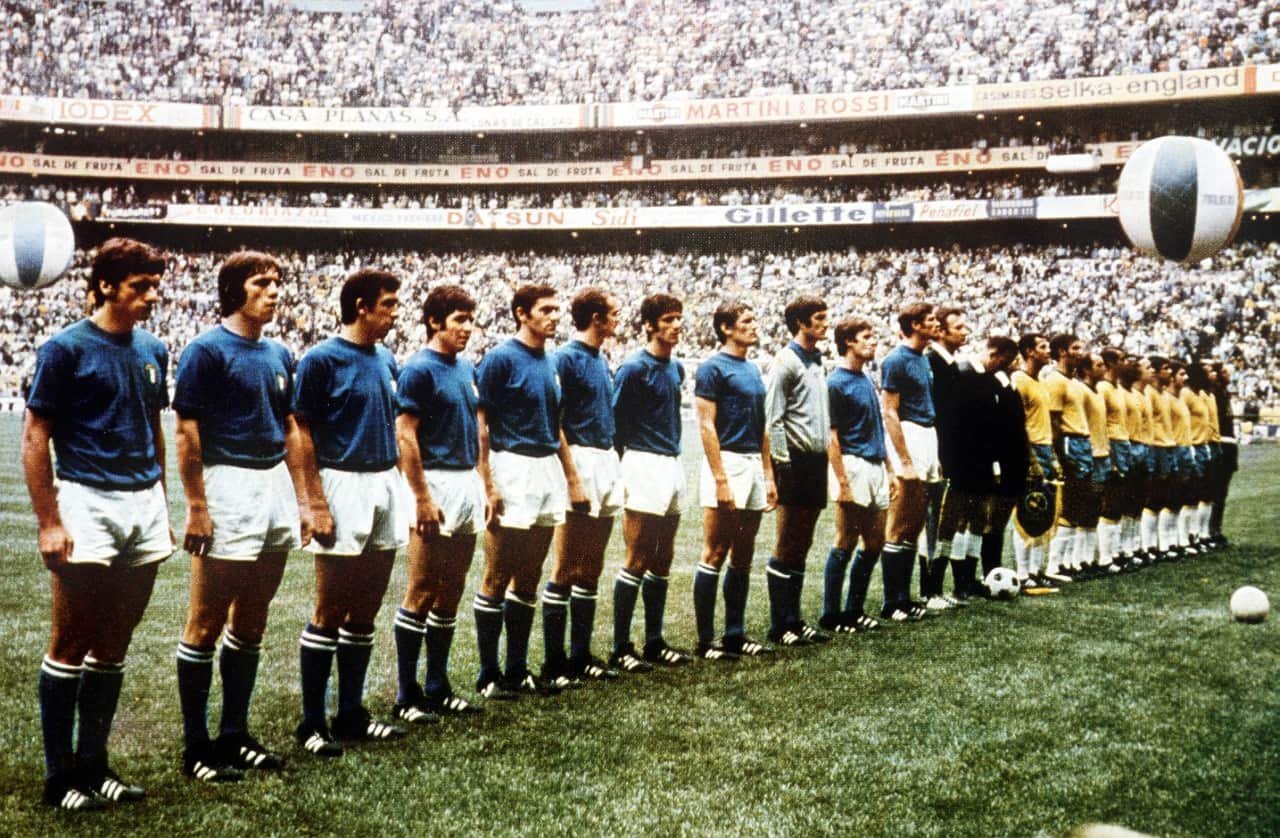 En route to the final, Italy had comfortably disposed of the host nation, beating Mexico 4-1 in the quarterfinals, before edging past Germany 4-3 in overtime in a rollercoaster semifinal which was dubbed 'the game of the century'.
En route to the final, Italy had comfortably disposed of the host nation, beating Mexico 4-1 in the quarterfinals, before edging past Germany 4-3 in overtime in a rollercoaster semifinal which was dubbed 'the game of the century'.

Players of Italy and Brazil are ready for the 1970 FIFA World Cup final at the Azteca stadium in Mexico city Source: Getty Images
The odds in the final, however, remained heavily in favour of Brazil because of one man - Pelé.
"We knew we were facing an absolute champion, the greatest of all. We were hoping to be able to limit his immense class but we didn't succeed," Giancarlo De Sisti, then a 27-year old Italian mid-fielder told SBS Italian.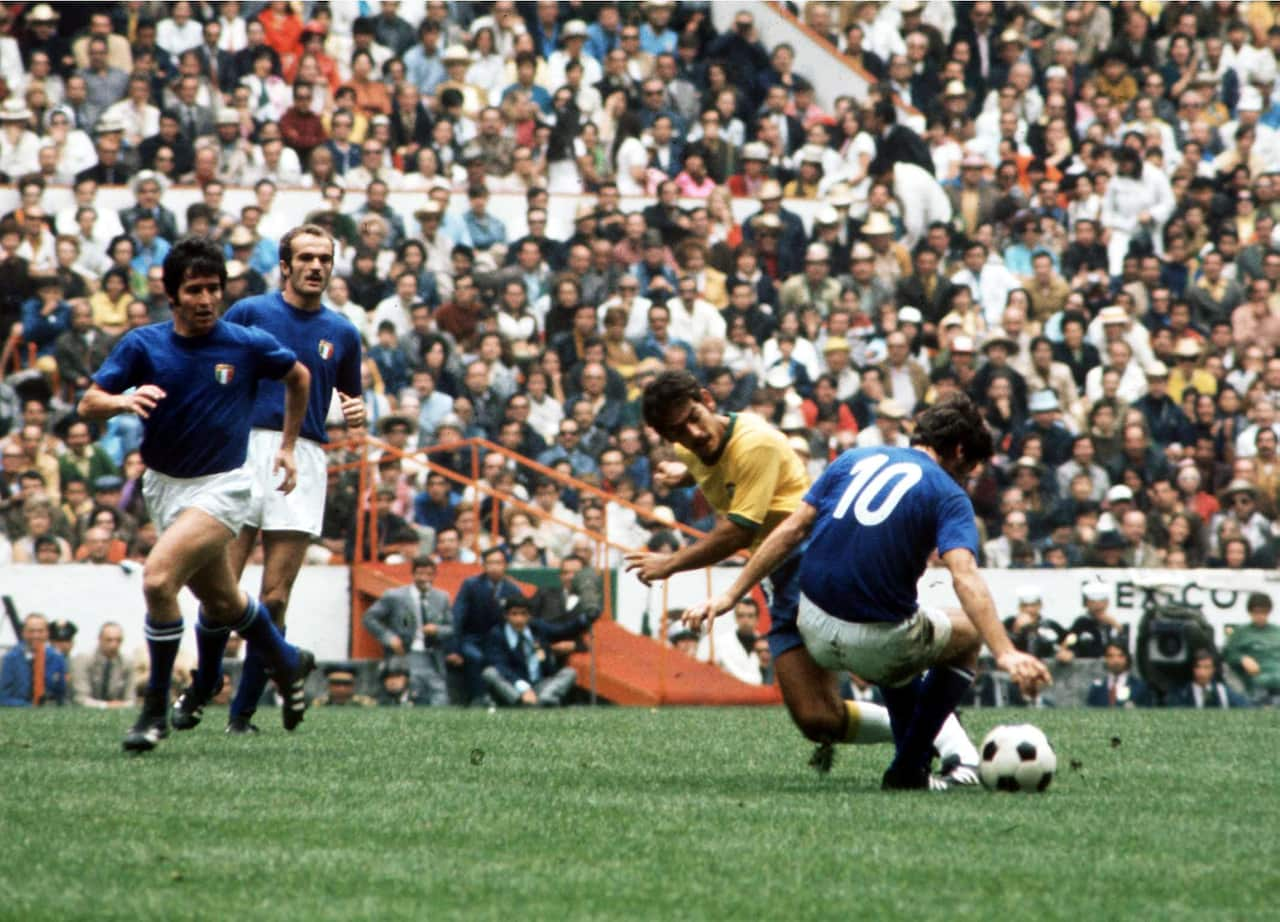 Pelé, who was 17 when he won the 1958 World Cup, was nearing the end of his career, which was highlighted by a Guinness world record of 1283 goals in 1363 games, mostly played in his home country.
Pelé, who was 17 when he won the 1958 World Cup, was nearing the end of his career, which was highlighted by a Guinness world record of 1283 goals in 1363 games, mostly played in his home country.

Brazil's Rivelino challenges Italy's Mario Bertini for the ball watched by Giancarlo De Sisti and Sandro Mazzola Source: Photo by Rolls Press/Popperfoto via Getty Images
Unlike Diego Maradona or Lionel Messi, Edson Arantes do Nascimento (Pele) did not test himself in any of the Old Continent's leagues. That, however, doesn't stain his image in the history of the sport.
"I recall the wonder, the emotion and the admiration as we were playing against a living legend. The players of my generation just loved Pelé. That guy could jump in the sky, sprint like a panther, dribble past your whole team and could use both feet with the same ability," said Giancarlo, recalling the World Cup final played half-a-century ago. "He was at his finest. To me, he was simply the King."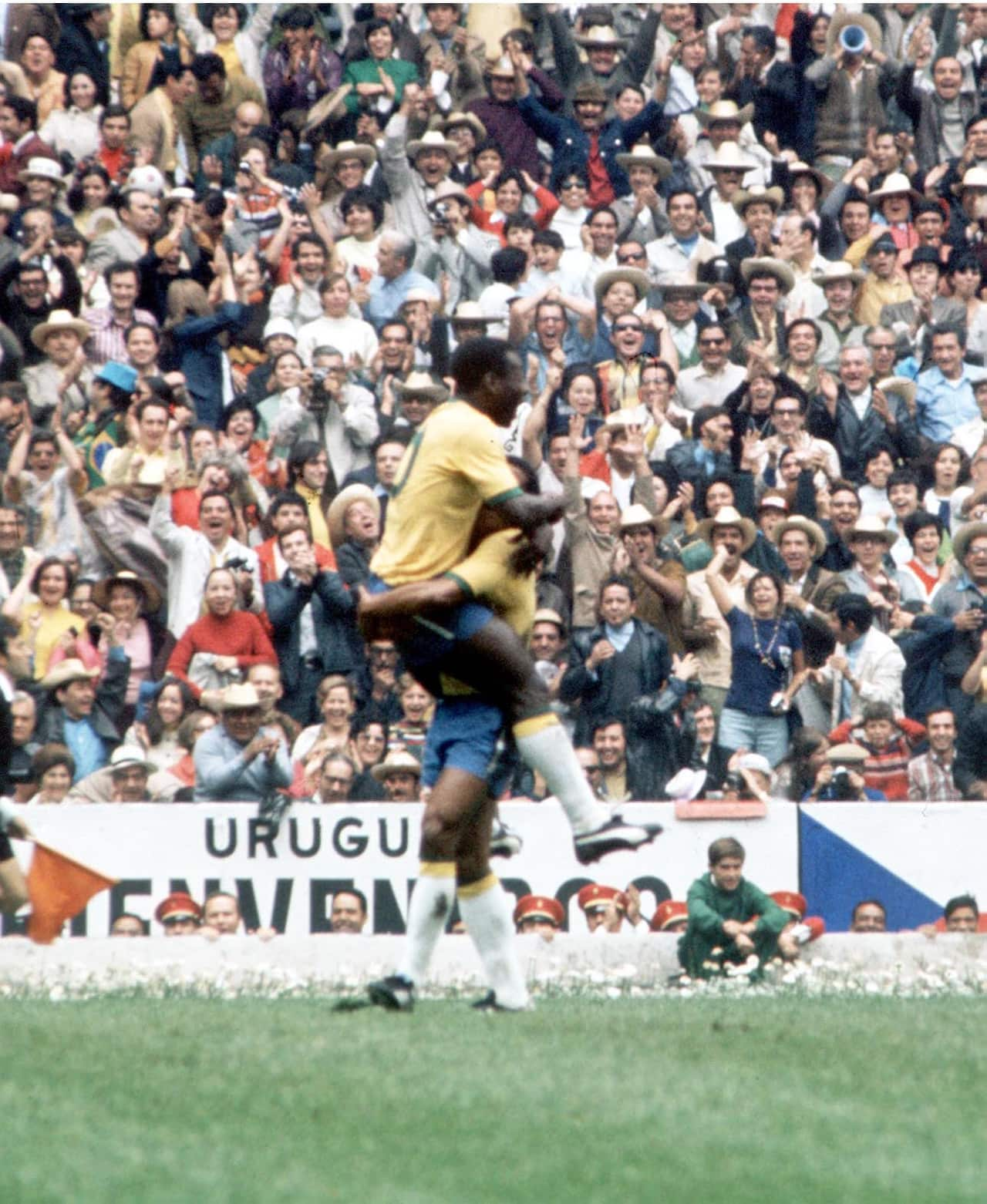 To date, the youngest player to score in a World Cup competition and Brazil's International leading goal scorer, Pelé found the back of Italy's net after 18 minutes with a header, before the Azzurri equalised, courtesy of Inter Milan's forward Roberto Boninsegna.
To date, the youngest player to score in a World Cup competition and Brazil's International leading goal scorer, Pelé found the back of Italy's net after 18 minutes with a header, before the Azzurri equalised, courtesy of Inter Milan's forward Roberto Boninsegna.

Brazil's Pelé celebrates after scoring the game's opening goal in the eighteenth minute, past Italian goalkeeper Enrico Albertosi Source: Photo by Rolls Press/Popperfoto via Getty Images
"Pelé was dominating the scene, but we had a pretty good squad," recalls Giancarlo, who was Italy's playmaker.
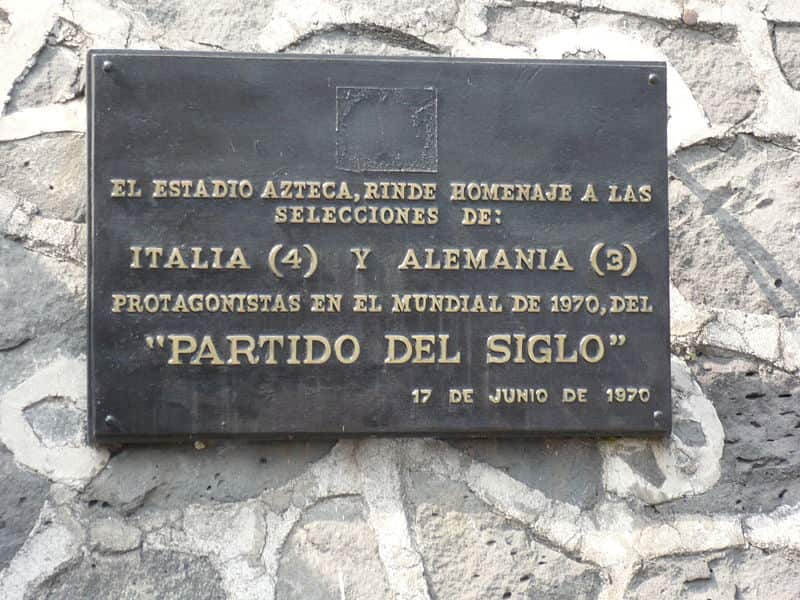
The commemorative plaque at the Azteca stadium in Mexico City celebrating the "Game of the Century" played on 17 June 1970 between Italy and Germany Source: WikiCommons
"It's hard to tell whether the result would have been any different if Rivera had played. It could have been a bit better for us," says Giancarlo.
But Brazil was much more than just Pelé, Rivelino and Tostão. The Seleção led by Mario Zagallo also had players like Gerson, Jairzinho and Carlos Alberto. They all scored in the second half, handing Brazil a lopsided 4-1 win, and the Jules Rimet trophy that was theirs to keep forever. Except the cup was later stolen in Rio de Janeiro.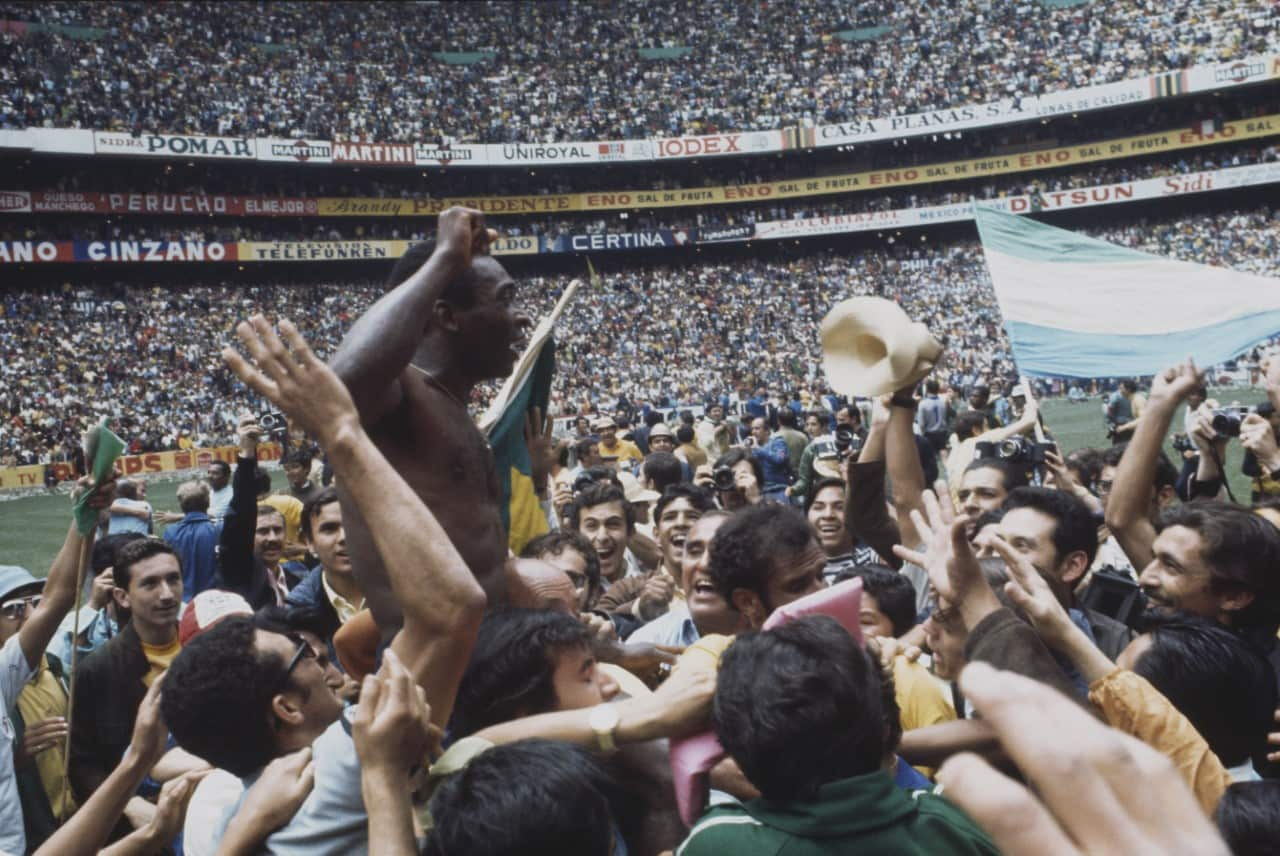 "We were in awe because we saw Pelé from a close range. His body was incredibly strong, his technique was superb, his talent unique. You could only wonder if he came from Mars, Venus or Jupiter. He was like a Martian capable of supernatural tricks," Giancarlo told SBS Italian.
"We were in awe because we saw Pelé from a close range. His body was incredibly strong, his technique was superb, his talent unique. You could only wonder if he came from Mars, Venus or Jupiter. He was like a Martian capable of supernatural tricks," Giancarlo told SBS Italian.

Pelé is held up on the shoulders of fans and Brazil national football team officials as they celebrate Brazil's 4-1 victory over Italy Source: Photo by Rolls Press/Popperfoto via Getty Images
Pelé to this date is the only football player to ever win three FIFA World Cup.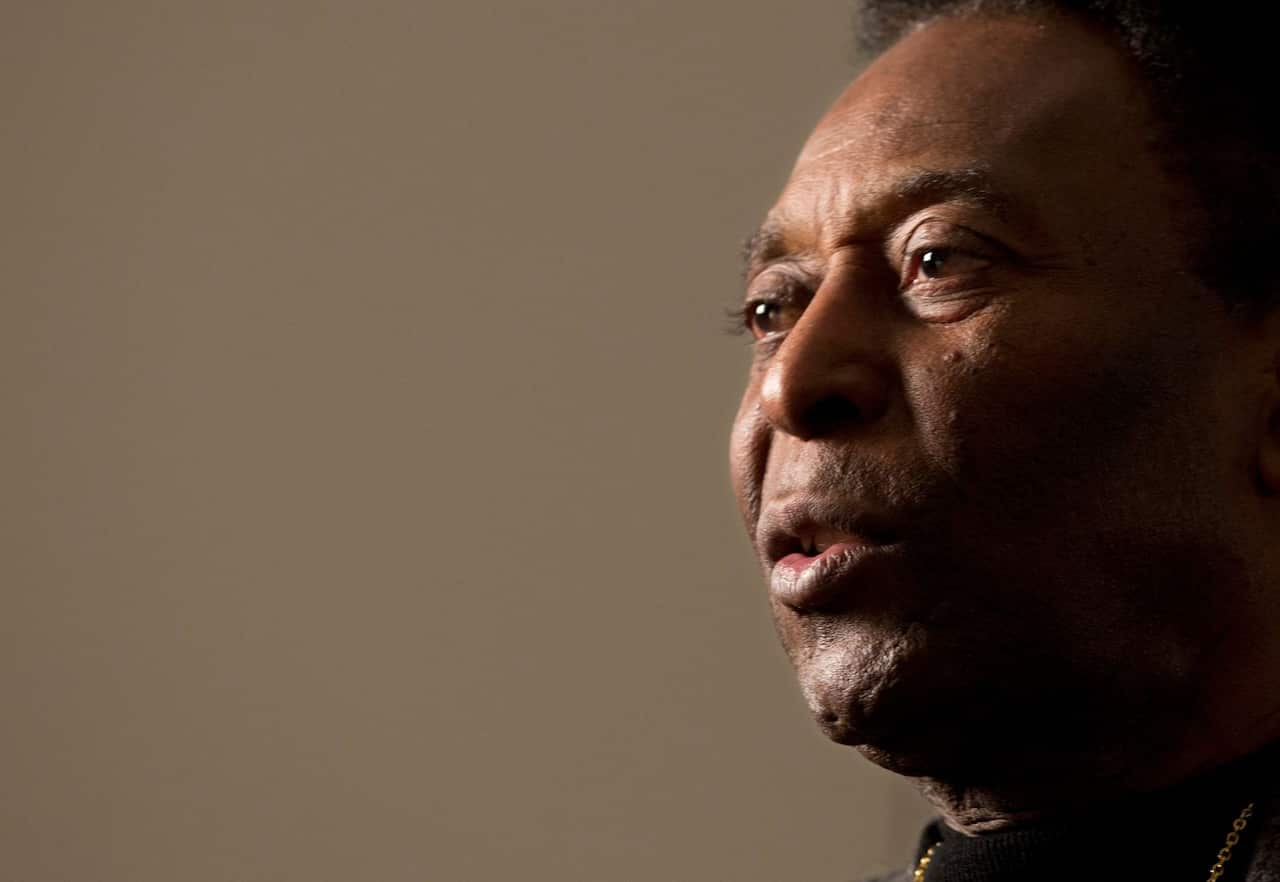

Edson Arantes do Nascimento, known as Pelé, was born in the Brazilian state of Minas Gerais on 23 October 1940 Source: AAP Image/AP Photo/Mark Lennihan




